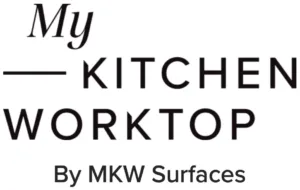Durable Worktops in Inflationary Times: MyKitchenWorktop’s Guide to Long‑Term Value.
The team at MyKitchenWorktop keeps a close eye on the UK economy to help homeowners make decisions that safeguard the value of their properties. With headline inflation still above target, rising construction costs and house prices continuing their climb, investing now in durable worktops—granite, quartz, sintered porcelain such as Neolith, marble or terrazzo—has become a smart long‑term strategy. Get a free quote today and learn how to future‑proof your kitchen.
1. UK economic backdrop
1.1 Inflation remains stubborn
The latest Office for National Statistics bulletin shows that consumer inflation slowed to 2.6 % in March 2025 but core prices are still rising 3.4 % year‑on‑year :contentReference[oaicite:0]{index=0}. While the trend is down, every pound buys less than it did four years ago. Higher energy and food bills mean household budgets feel the pinch.
1.2 House prices continue to climb
The HPI puts the average UK home at £268,000, up 5.4 % on the year to February 2025 :contentReference[oaicite:1]{index=1}. Even if growth cools, analysts do not expect a market correction. In a competitive environment, quality upgrades—especially in the kitchen—help a property stand out.
1.3 Construction costs keep rising
The BCIS predicts that building costs will increase another 17 % by 2030, driven mainly by labour shortages and material prices :contentReference[oaicite:2]{index=2}. Any project deferred today is likely to cost much more tomorrow.
Get a free quote and discover how an early investment in premium worktops offsets those future hikes.
2. How durable worktops hedge against inflation
Inflation erodes purchasing power, but high‑end worktops act as an “inflation shield.” Once installed, they remain functional and attractive for decades, eliminating the need for repeated replacements that track rising prices. This lower total cost of ownership keeps long‑run expenses in check.
- Fewer replacements: granite, quartz, Neolith and marble typically outlast cheaper laminates by a factor of three.
- Minimal maintenance: non‑porous or properly sealed surfaces reduce annual upkeep.
- Higher resale appeal: kitchen upgrades deliver an average UK ROI of 67 % and can add up to 10 % to a home’s selling price :contentReference[oaicite:3]{index=3}.
3. Material overview
3.1 Granite
The granite portfolio offers unmatched hardness and heat resistance. With periodic sealing, granite worktops keep their polish for decades and shrug off hot pans and daily wear.
3.2 Quartz
Quartz blends natural stone with resins for a non‑porous, stain‑proof finish. It comes in a vast colour palette—from crisp whites to dramatic veining—suiting both classic and modern kitchens.
3.3 Sintered porcelain (Neolith)
Neolith slabs are pressed and baked above 1,200 °C, creating an ultra‑compact surface that resists scratches, chemicals, UV rays and even graffiti. Large‑format panels produce seamless islands and outdoor counters.
3.4 Marble
Marble offers timeless elegance and unique veining. When sealed properly, it performs brilliantly in low‑to‑medium‑traffic kitchens and adds real estate cachet.
3.5 Terrazzo
Terrazzo mixes stone chips with high‑performance binders. The result is a hand‑crafted aesthetic and robust durability that bridges heritage style and contemporary design.
Unsure which surface works best for your lifestyle? Get a free quote and let MyKitchenWorktop match material to budget.
4. Financial impact of a premium kitchen
4.1 Capital appreciation
Buyers focus on kitchens. A remodel featuring durable worktops can lift asking prices and shorten time on market. Estate agents confirm that granite, quartz or Neolith islands photograph well and headline listings.
4.2 Protection against construction inflation
Because replacement costs track labour and material inflation, fitting a cheaper surface now and upgrading later could cost up to 50 % more. Choosing a premium top today locks in current prices and defers major spending for 20–30 years.
4.3 Lower lifetime maintenance
Quartz’s non‑porous nature, Neolith’s chemical resistance and granite’s toughness all reduce the need for specialist cleans or resurfacing. That means fewer service calls and lower bills.
5. Trends supporting the upgrade
- Function‑first design: Post‑pandemic UK homeowners cook more at home; 92 % upgrade their worktops during kitchen renovations :contentReference[oaicite:4]{index=4}.
- Sustainability: Long‑lasting materials generate fewer replacements, cutting waste and carbon footprints.
- Versatile aesthetics: Finishes range from high‑gloss book‑match marble to matte industrial terrazzo, fitting any interior scheme.
Get a free quote and explore the full palette of textures and colours.
Durable Worktops in Inflationary Times: MyKitchenWorktop’s Guide to Long‑Term Value.
6. MyKitchenWorktop’s recommended roadmap
- Set a realistic budget: Allocating 5–15 % of current property value to a kitchen refurbishment typically maximises ROI.
- Choose the right material: Balance traffic levels, style and maintenance preferences.
- Schedule professional installation: Precision cutting and sealing ensure decades of service life.
- Adopt preventive care: Use gentle cleaners and, for marble or granite, reseal as advised.
7. Conclusion
Inflation and construction costs may rise, but a well‑timed investment in durable worktops protects property value, reduces lifetime expenses and elevates daily living. Granite, quartz, sintered porcelain, marble and terrazzo each offer a unique blend of resilience and beauty.
Ready to safeguard your kitchen—and your investment?
Get a free quote from MyKitchenWorktop and let our experts guide you toward worktops that stand the test of time and the pressures of the market.







